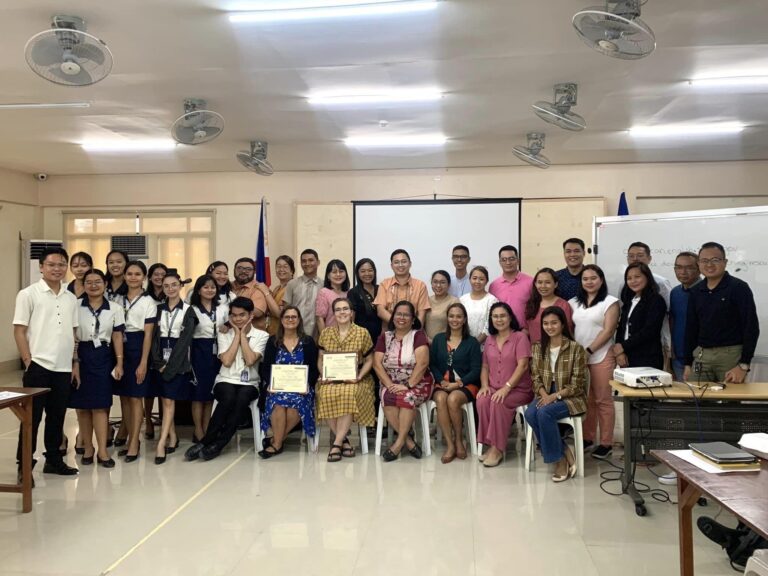The morning sessions on November 7, still led by US Embassy’s English Language Fellow, Dr. Kirsten Dyck, began with Games for Teaching Reading, which tackles the different educational games to help students interact with stories. It was followed by Creating Your Own Materials for Teaching Reading, wherein the participants made and shared their own creative learning materials.
In the afternoon, Dr. Carleen Velez, the Regional English Language Officer (RELO) of the US Embassy, joined the remaining two sessions of the workshop: Hands-On Reading Activity Session and Roundtable Discussion – Final Thoughts and Questions.
The main topic of discussions among the chosen panelists from each WVSU campus revolved around the students’ strength in creativity must be utilized to their maximum potential, for them to learn effectively as it encourages a more engaging method of learning—either through video-making or graphics. However, the group agreed that with the careless usage of technology, today’s generation of students are equipped to use it as “source material” and “short fixes”—they no longer connect with text, which led into the conclusion that students must be immersed in reading a few minutes before the start of the class to give them “opportunities to engage with texts” on reading materials of their own choosing and discussing it later on in class.
Concerns regarding “regimented curriculum”, which unable educators to teach reading with creative liberty were also raised. An alternative was suggested by the group: adapt “uninterrupted, sustained silent reading” and as well as give the students reading materials in advance to provide them the luxury of learning it at their own pace.
Dr. Velez recognized that besides being creative, Filipinos are “amazing performing artists”. She said, “I think sometimes as teachers we don’t take that aspect into the classroom.” She emphasized how some students register or process knowledge in different ways, and what works for one student might not work for the rest of the class.
“Take the strength and creativity that Filipinos have and give them a little bit of choice on how they demonstrate their knowledge and I think your students are gonna be happier,” Dr. Velez added.
The training-workshop was in coordination with the WVSU International and Local Linkages Office – ILLO.
